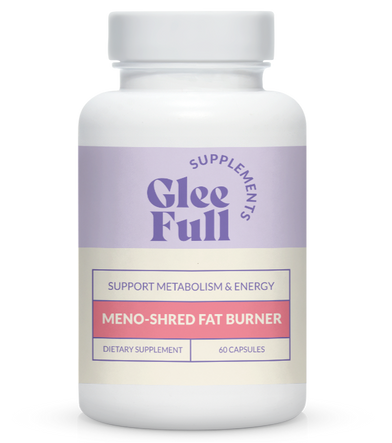Your Cart




Losing weight is a common goal for many, yet it often feels like an uphill battle. Despite our best efforts, the scale sometimes refuses to budge. If you've ever found yourself wondering why shedding those extra pounds is so challenging, you're not alone. Various factors contribute to this difficulty, and one of the most potent among them is cravings. Let's explore why shedding those extra pounds can be so tough and delve into the critical role cravings play in this struggle.
The Biological Battle: Why Our Bodies Resist Weight Loss
Our bodies are evolutionarily designed to protect us from famine and food scarcity. Here are some biological reasons why weight loss is challenging:
Human bodies have evolved to store fat as a survival mechanism. When food was scarce, those with higher fat stores had a better chance of surviving. This evolutionary trait still exists, making it hard for modern humans to lose weight, even when food is abundant.
Several hormones regulate hunger and satiety, and they can be a double-edged sword in weight loss efforts:
The Role of Cravings in Weight Loss Challenges
Cravings can undermine weight loss efforts in several ways:
Cravings often lead to overeating or binge eating, where you consume large quantities of high-calorie foods in a short period. This can quickly counteract any calorie deficit you’ve achieved through dieting and exercise.
Succumbing to cravings typically means choosing foods that are high in sugar, fat, and salt but low in essential nutrients. This can lead to nutrient deficiencies, making you feel tired and less motivated to exercise or stick to your weight loss plan.
Giving in to cravings can lead to feelings of guilt and a negative self-perception, which can demotivate you and create a cycle of emotional eating and further cravings.
How to Determine if Metabolism Slows Down During Menopause
Menopause marks a significant transition in a woman’s life, bringing about various physical and hormonal changes. One of the common concerns during this stage is a slower metabolism, which can make weight management more challenging. Understanding and determining whether your metabolism has slowed down during menopause can help you adapt your lifestyle and maintain a healthy weight.
What is Metabolism?
Metabolism is the process by which your body converts what you eat and drink into energy. This process involves a complex set of chemical reactions that keep your body functioning. Basal metabolic rate (BMR) is the number of calories your body needs to perform basic functions at rest, and it accounts for the majority of your daily energy expenditure.
Why Does Metabolism Slow Down During Menopause?
Several factors contribute to a slower metabolism during menopause:
Tips to Boost Metabolism During Menopause
If you determine that your metabolism has slowed down, here are some strategies to help boost it:
The Menopause-Metabolism Connection
Menopause is characterized by a significant drop in estrogen levels, which can lead to a slower metabolism and an increase in fat storage, particularly around the abdomen. These changes often result in heightened cravings for sugary and high-carb foods as the body attempts to maintain energy levels and balance. Additionally, the loss of muscle mass that comes with aging further complicates weight management, as muscle tissue burns more calories than fat.
How Supplements Can Help
Supplements can be a game-changer when it comes to managing cravings and boosting metabolism during menopause. Here’s how:
Certain supplements contain ingredients that help reduce cravings by stabilizing blood sugar levels and influencing neurotransmitters that regulate hunger. By managing these factors, supplements can help you avoid the pitfalls of emotional eating and the urge to reach for unhealthy snacks.
Some supplements are designed to enhance metabolic function, helping your body burn calories more efficiently. Ingredients like green tea extract, caffeine, and certain vitamins can support metabolic processes, giving you an extra edge in your weight management efforts.
Menopause can take a toll on overall health, affecting everything from bone density to mood. Supplements that include a blend of vitamins, minerals, and herbal extracts can provide comprehensive support, addressing multiple menopausal symptoms simultaneously.
Introducing Gleeful's Carb Blocker
One supplement that stands out in the fight against menopause-related cravings and metabolic slowdown is Gleeful's Carb Blocker. Here’s why this supplement is a top choice for maintaining a healthier, slimmer body during menopause:
Effective Carb Blocking
Gleeful's Carb Blocker contains white kidney bean extract, a powerful ingredient known for its ability to inhibit the enzymes that digest carbohydrates. By blocking the absorption of carbs, this supplement helps reduce calorie intake and prevent the spikes in blood sugar that lead to cravings.
Boosts Metabolic Function
In addition to carb-blocking properties, Gleeful's Carb Blocker includes green tea extract, which is rich in antioxidants and has been shown to enhance metabolism. This dual-action formula not only helps control cravings but also supports a more active metabolic rate, making weight management more achievable.
Natural and Safe Ingredients
Gleeful's Carb Blocker is made with natural ingredients, ensuring that you get the benefits without the harsh side effects that can come with some weight loss supplements. It’s a safe and effective option for women looking to take control of their weight and health during menopause.
Comprehensive Health Support
Beyond its weight management benefits, Gleeful's Carb Blocker includes vitamins and minerals that support overall health. This holistic approach ensures that while you’re targeting cravings and metabolism, you’re also taking care of your body’s broader nutritional needs.
Why Choose Gleeful's Carb Blocker?
Conclusion
Menopause can make managing weight and cravings feel like an uphill battle, but with the right support, you can navigate these changes effectively. Supplements like Gleeful's Carb Blocker offer a natural, safe, and effective way to control cravings, boost metabolism, and maintain a healthier, slimmer body during this stage of life.